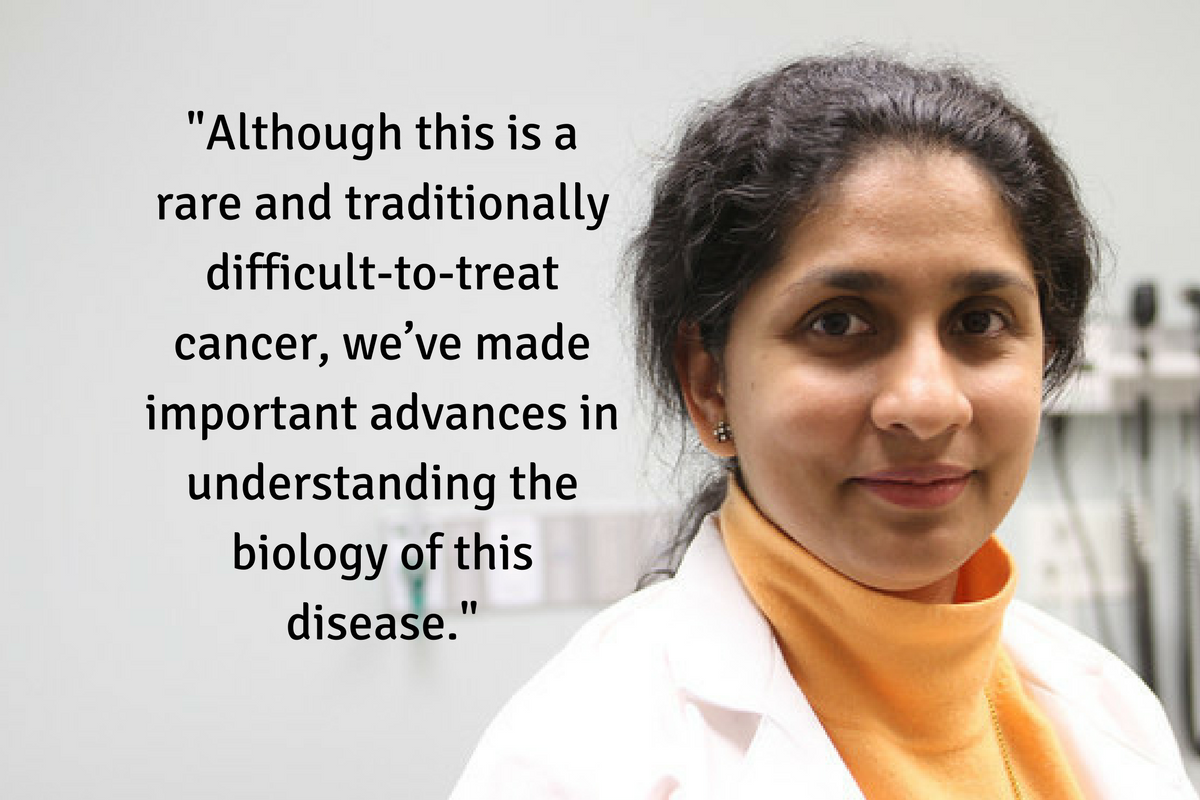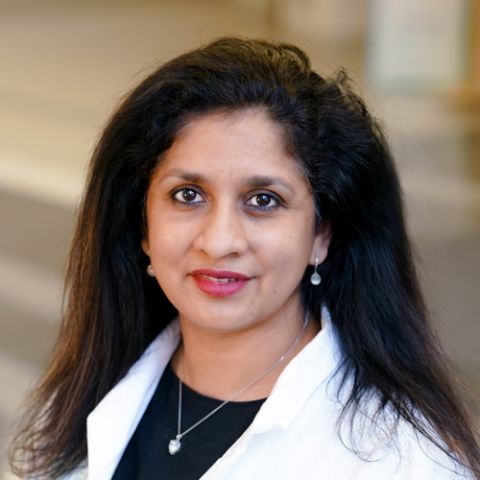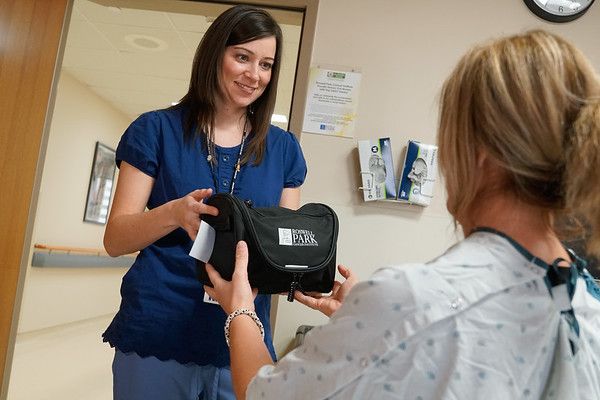What is cholangiocarcinoma?
Cholangiocarcinoma refers to cancers that start in your bile ducts. Your bile ducts are located both inside and outside of your liver as well as in your gallbladder.
How common is it?
Cholangiocarcinoma is quite rare. However, intrahepatic bile duct cancer (meaning cancer in the bile ducts inside your liver) is actually increasing in incidence.
What makes this disease different than other cancers?
Any patient with cancer needs a functioning gastrointestinal (GI) tract to sustain proper absorption of nutrition and medications. Unfortunately, patients with cholangiocarcinoma often have obstructed bile ducts that limit GI tract functionality and can potentially lead to infections if they have stents or drains in their bile ducts. This makes the disease more difficult to treat because an obstruction in flow of bile impacts the patient’s ability to remain on life-sustaining treatment and for the liver to process toxins and medications. Having these “plumbing” issues treated successfully is the key to better outcomes. For this reason, treatment of cholangiocarcinoma requires expert care by a team that specializes in this area.
Are there any signs or symptoms?
Cholangiocarcinomas are sometimes misdiagnosed due to a lack of unique symptoms and no specific screening tests. Many times, tumors in the liver are found during testing or scanning for something else entirely. Some patients may experience painless jaundice, which is yellowing of the skin or eyes. Tumors in the liver can sometimes cause pain and tumors in the gallbladder may be found when the patient experiences gall stones. Eventually, a variety of tests and innovative technologies confirm a cholangiocarcinoma diagnosis.
What are the treatment options?
Treatment can include surgery, radiation and/or chemotherapy. However, as I mentioned earlier, endoscopic procedures, which use a minimally invasive approach to reach the upper GI tract, are also extremely important to correct the blockages that can occur and thus hinder the success of treatment. Targeted therapies and immunotherapies are showing promise as well.
Never miss another Cancer Talk blog!
Sign up to receive our monthly Cancer Talk e-newsletter.
Sign up!What breakthroughs have been made?
Today we have a much better understanding of cholangiocarcinoma biology and far greater research papers, published trials and novel drugs being studied than ever before. Unfortunately, progress has been very slow in cholangiocarcinoma research. It’s a rare disease and many physicians don’t know how to treat the obstructions and infections that can arise. There are currently no guidelines to support these providers and give them evidence-based direction.
I recently co-chaired a Delphi panel of experts from all over the world and we developed a consensus document that was presented at a national oncologists’ conference and the annual Cholangiocarcinoma Foundation meeting. We’re hoping to launch a “Give Me 5” campaign on Giving Tuesday where providers and patients who have been affected by this disease would provide the names and addresses of five hospitals where they believe having higher quality education materials would improve patient care. The Cholangiocarcinoma Foundation would then send materials to those organizations.
How can patients with this type of cancer be self-advocates?
I was involved in developing a biliary emergency card that is an easy-to-use tool for patients to help improve their own care. Cholangiocarcinoma patients all over the world can download this card, fill in their in their information and carry it with them at all times. The card contains information that will help medical providers know what to look for and how to treat these patients during emergency situations.
What words of hope do you have for a cholangiocarcinoma patient?
Although this is a rare and traditionally difficult-to-treat cancer, we’ve made important advances in understanding the biology of this disease and completing large clinical trials that will lead to a new standard of care all over the world. There are three major things to look forward to in the near future:
- Better education for those caring for cholangiocarcinoma patients, from primary care physicians to emergency room nurses.
- More treatment options, including immunotherapies, resulting from larger clinical trials.
- Greater engagement between the research community and pharmaceutical companies to bring new drugs to patients.
Dr. Iyer will be launching more clinical trials in the coming year. Stay tuned on our clinical trials page and email AskRoswell@Roswellpark.org with any questions.


